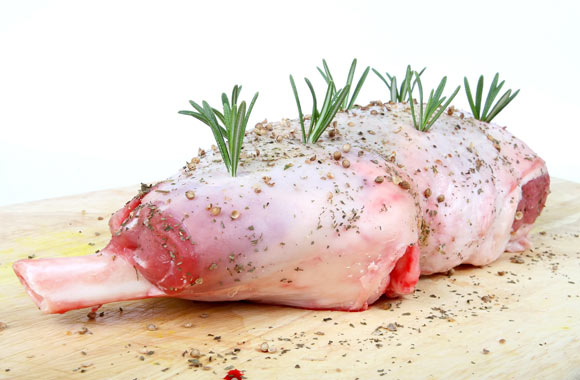The health benefits of meat
Meat possesses a high quantity of proteins and is one of the richest sources of proteins, that’s why the health benefits of meat are numerous. Meat also possesses other nutrients and performs important metabolic functions. We need nutrients to live and work. If we are devoid of good nutrients, we will not be able to perform our activities with concentration. So we must include vitamins, minerals, fats, and proteins in our diet and all of these are easily provided by meat.
Meat Increases Body Will Power
The benefits of eating meat are several. By eating meat daily, you will not only keep the good health of your body but will also offer it the power to resist a variety of infections and troubles.
Important Nutrients that Meat Possess
Meat possesses the following important nutrients such as:
Proteins: Protein is present in an abundant amount of meat; in fact, meat is chiefly composed of protein. Protein is needed in various important functions and is responsible for the building and restoration of tissues of the body and the synthesis of antibodies that are needed to provide protection.
Vitamins: Vitamins are also present in meat, especially vitamin B complex. This vitamin B is needed to be saved from acquiring anemia. It also possesses vitamin D which makes our bones strong.
Minerals: Minerals are also present in a definite proportion of the meat, particularly iron and zinc. Iron is needed to make up hemoglobin a necessary component of blood while zinc is essential for metabolism.
Lipids/Fat: Linoleic acid and palmitoleic acid are the two important fats richly present in meat. It is believed that they are needed to combat viruses and cancers. They enhance body immunity and help in brain development.
Good Source of Bioactive Substances
Meat is a great source of bioactive substances. Bioactives are very important for our body to carry out different physiological functions of the body. Bioactive substances include carnosine, anserine, taurine, glutathione, coenzyme Q10, a bioactive peptide, carnitine, etc all perform different functions in our body. These functions include antioxidant function, muscle contraction, anti-carcinogenic function, and even anti-aging function.
Development of Retina and Brain
Meat possesses an important element the taurine which is essential in the development of our nervous system as well as the retina of the eye.
Creatine Present in Meat
Meat provides our body with important protein creatine. It is essential to increase the mass of the muscles. Bodybuilders use creatine supplements but instead of eating creatine supplements, you can eat meat and get not only creatine but various other beneficial nutrients from meat.
Though meat possesses rich nutrients and protein, it also possesses a high content of fats. Fats results in increased cholesterol and its accumulation in the arteries. The cholesterol accumulation in the arteries gives rise to atherosclerosis and cardiac problems. One needs to be careful regarding meat. You can attain its beneficial effects by using it in a limited amount. You can take 1 to 3 meat servings in a week. This is very essential to prevent different diseases from taking place from their high fat and cholesterol content. The rational and cognizant eating of meat will certainly help you to enjoy and to get good nutrients from the meat while keeping your body protected from its bad effects.

Chicken Benefits
Chicken is one of the best sources of protein that can be cooked in so many different ways that you could never get bored of it. Not only is chicken an excellent source of protein, but it has many other vitamins and nutrients that are great for our bodies. Some of them include tryptophan, vitamin B3, selenium, vitamin B6, and phosphorus. All of these nutrients help our bodies stay healthy in many ways.
Protein is a great source of weight loss and in older people, has been proven to help prevent bone loss. Vitamin B3 and B6 contain niacin, which has been proven to have cancer-fighting qualities. They also help rev up your metabolic thyroid functions and immune system which gives your body more energy to get through your day. Selenium has also been proven to help prevent cancer cells from forming and helps protect our bodies from heart disease and Alzheimer’s.
The leanest part of the chicken to eat is the breast, which contains very little fat, especially saturated fat. For people who are trying to lose weight, the less fat you eat the less your body has to process for energy and therefore it starts to burn off the fat that has been stored up in your body, helping you to lose weight. Another reason chicken helps you lose weight is because your body burns more calories processing protein than any other food.
The wings, thighs, and legs are just as tasty as the chicken breast, but are considered dark meat and contain more fat than the chicken breast. These pieces of chicken offer the same benefits as the breast but are not as high a source of the nutrients and vitamins found in the chicken breast.
The way you cook your chicken is just as important as what ingredients you use to add flavor to your recipe. If you deep fry chicken in oil or cover it with butter before placing it in a pan or on the grill, you lose the benefit of having little or no fat content. A range of different seasonings and sauces can be used to flavor chicken from rosemary to curry and soy sauce to Alfredo sauce. One has to be careful in looking at the ingredients of the spices or sauces one uses with their recipe. A large amount of sodium will counter the benefits of the chicken preventing heart disease. Another culprit of heart disease is fat or cholesterol, which many cream sauces are known to be high in content.
Using vegetables or even fruit to prepare your chicken is the healthiest way to enjoy all the benefits that chicken can offer your health. A stir-fry with vegetables or a mango-pineapple salsa over citrus chicken offers you all the benefits mentioned above, plus adds more healthy vitamins and nutrients to your everyday life. However you choose to eat it, chicken is one of the best things you can give your body to lead a healthy lifestyle.

Lamb Benefits
Since lamb is a meat product, it is most commonly known as being a good source of protein in one’s diet. But lamb is also a good source of other vitamins and nutrients that our bodies need. Iron, zinc, and vitamins B3 and B12 are found in lamb.
Iron can help your body fight anemia (low iron count in your blood), helps to prevent heart disease, and has been included in diets for people with diabetes because eating lamb helps regulate blood sugar levels. Zinc is most commonly known to build up your body’s immune system, improve digestion issues, and speed up your metabolism. Your body absorbs more zinc from eating lamb than from taking supplements zinc. Vitamin B3 is a great source for increasing good (HDL) cholesterol levels and reduces your risk of Alzheimer’s, cataracts, osteoarthritis, and diabetes. Vitamin B12 has been known to help prevent heart disease and reduce the risk of breast, lung, and cervical cancers.
Lamb also contains omega-3 fats, which are more commonly found in fish, shellfish, and other types of seafood. Omega-3 fats are also known to help in fighting heart disease and increase weight loss.
Other traces of nutrients such as copper, manganese, and selenium can be found in lamb as well. These trace elements also aid in reducing the risks of cancer, heart disease, and diabetes.
Lamb is not as common of a menu item in America but is a staple in Mediterranean diets and very common in Australia and New Zealand because that is where two-thirds of the lamb distributed around the world is raised. Grain-fed lamb is the best because it is organic, meaning hormones were not added to the meat in any way to increase the weight or amount of meat found on a lamb.
Lamb is the meat taken from sheep that are less than one year old. There are five types of cuts that are most commonly purchased for consumption; the leg, rack, leg/loin, shoulder, and shank.
It is commonly prepared by grilling or roasting, but you can enjoy it any way you like.

Turkey Benefits
When I think of turkey, the first thing I think of is Thanksgiving. Usually, in America, turkey is enjoyed once a year with all the wonderful side dishes that are served with Thanksgiving dinner. Mashed potatoes, green bean casserole, sweet potato casserole, fresh butter rolls, etc., aren’t very beneficial to a healthy lifestyle, but once in a while, we can splurge.
Turkey has become more of a staple in people’s diets because of the lean white meat it provides. Low in fat and full of vitamins and nutrients no wonder people are eating it more and more every day. And with so many innovative ways to serve turkey, the possibilities of turkey recipes are endless.
There aren’t many studies on turkey itself because it is considered poultry, just like chicken, and offers the same health benefits as eating chicken. These include, but are not limited to protein, vitamin B3, selenium, vitamin B6 and phosphorus, the same as in chicken.
Protein is a great source of weight loss and in older people, has been proven to help prevent bone loss. Vitamin B3 and B6 contain niacin, which has been proven to have cancer-fighting qualities. They also help rev up your metabolic thyroid functions and immune system which gives your body more energy to get through your day. Selenium has also been proven to help prevent cancer cells from forming and helps protect our bodies from heart disease and Alzheimer’s.
As with any other meat, turkey is full of protein which aids in weight loss as well. The body burns 30 calories for every ounce of meat it consumes, which is more than any other food group.
Turkey has become a more popular item to use in sandwiches and salads instead of processed lunch meats, which are high in sodium and preservatives. These processed foods do not break down in your body they kind of just sit in your stomach like garbage in a garbage dump until someone or something comes along to get rid of them.
Turkey is most often roasted whole in the oven, but nowadays you can see people deep frying turkey, grilling, or broiling it. In my opinion, using ground turkey to make turkey burgers or substituting ground turkey in recipes that ask for more ground beef is a great way to improve your health for the better.

Beef Benefits
Beef can be eaten in so many different ways no one can count. There are so many types of beef and different cuts to choose from. From ground beef to porterhouse steaks, each cut has a different amount of fat content.
From working in steakhouse restaurants in the past, I know that the more fat there is on a steak the more flavorful the steak is, which is true, but the lean cuts of steak such as a filet or sirloin are not less flavorful than a porterhouse or a rib-eye, which has a marbling of fat throughout the steak. Ground beef, chuck, sirloin, and ground round are all ground beef, but each has a different amount of fat in it. If you get an 80/20 ground chuck, means that 80% of the mixture is meat and the other 20% is fat. If buying meat from a local butcher instead of prepackaged at the grocery store, you can always ask to have the meat ground with however much fat as you like.
Beef is considered red meat and contains more fat than white meat such as chicken or turkey. But beef still has many health benefits for our bodies. Lean cuts of beef such as filets, sirloin, or ground sirloin are low in fat and full of vitamins and nutrients like any other meat. Protein, zinc, vitamins B6 and B12, selenium, phosphorus, and iron are all found in beef.
Protein is an excellent aid in weight loss because your body burns more calories trying to process it in your system. Zinc helps prevent damage to blood vessel walls and is needed to have your immune system function properly. Selenium is an anti-inflammatory aid that helps reduce the occurrence of asthma and arthritis. Vitamins B6 and B12 aid in decreasing the risk of colon cancer. Phosphorus is an important nutrient that our body needs to build and retain strong teeth and bones. And finally, iron increases iron levels in the bloodstream to decrease the risk of getting anemia and carry oxygen throughout the bloodstream.
Even though beef is not as lean as white meats such as chicken or turkey, as you can see there are many benefits to eating lean, red meat.
The beef comes from cows and the best is organic beef, meaning that the cows are grain-fed and are not injected with hormones or other chemicals to help increase the amount of meat on a cow. More and more small farms have begun to raise organic cows and sell their hormone-free meat around the country. Most families, with small children, in particular, are encouraged to eat more organic meats and other foods because the hormones and chemicals used can be harmful to a child’s growth and just healthier in general.

Pork Benefits
In recent years, pork has been commercialized as the “other white meat” for the last few decades. Pork is red meat, it is not in the same category as other white meat such as chicken or turkey. Chicken or turkey is poultry while pork comes from a pig. Pork is still considered lean red meat, but it depends on which cuts you eat to enjoy these benefits.
Pork, especially pork chops are the leanest cut of pork found. Other pork products such as bacon or ham are cured using salt. This means they are high in sodium and fat content, which is not very healthy but can be enjoyed once in a while, in moderation.
Pork is having a particularly high level of the following vitamins and nutrients – protein, zinc, phosphorus, selenium, and various B vitamins.
As with any other meat, protein is a great nutrient to help aid in weight loss. Our body burns more calories to digest pork or any other meat. The more protein we eat, the more calories our body uses to digest the pork, and the more fat we lose. Zinc is an important vitamin that helps promote cell growth and boasts a body’s immune system. Phosphorus is known to help build strong teeth and bones. Selenium helps protect blood vessel walls from being damaged.
B vitamins are also very important meats are one of the most common foods that naturally have various B vitamins in them. It is a well-known fact that people who choose a vegetarian or vegan lifestyle, meaning they do not eat meat or dairy products, must take B vitamin supplements to get the needed B vitamins that their bodies need because they are very few other foods that naturally contain B vitamins.
Pork can be enjoyed in many different ways, from chops to nuggets or ground pork can be substituted for beef in almost any recipe. It’s a little bit leaner than ground beef but has the same benefits as beef.
Preparing pork is also as important as what cut you choose for yourself. When cooking pork, just as with any other meat, you must make sure that the interior temperature of the pork reaches at least 160 degrees to kill any bacteria that may be present in the meat.




